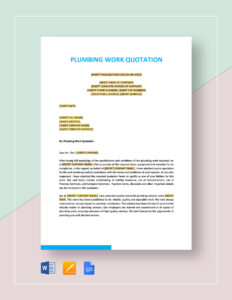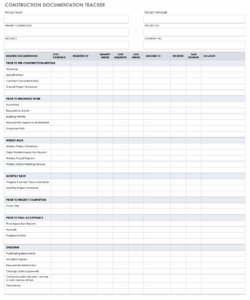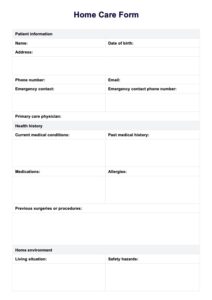Embarking on a roofing project, whether for repair or a complete replacement, can feel like a big undertaking. It involves significant investment, detailed work, and trust between homeowners and contractors. To ensure a smooth process and protect both parties, a clear and comprehensive contract is not just recommended, it’s absolutely essential. It lays out expectations, responsibilities, and the scope of work, preventing misunderstandings down the line.
Imagine the peace of mind knowing every detail, from the materials used to the payment schedule, is explicitly documented. This article will guide you through the importance of such an agreement and show you how a free residential roofing contract template can be an invaluable tool, saving you time and money while providing that crucial layer of protection.

The Cornerstone of Any Successful Roofing Project: Why a Contract Matters
A detailed roofing contract serves as the blueprint for your entire project, much like the architectural plans for your home. It goes far beyond a simple quote, meticulously outlining every aspect of the work to be performed. Without a solid contract in place, you expose yourself to potential disputes, unexpected costs, and a general lack of clarity that can turn a straightforward project into a headache. Think about it: what if the contractor’s understanding of “repair” differs from yours, or if a material substitution happens without your approval? A contract addresses these “what ifs” before they even arise.
For homeowners, a well-drafted contract provides security, ensuring that the work is completed to your satisfaction, within budget, and on schedule. It clarifies the quality of materials, specifies warranties, and outlines the responsibilities of the contractor. For the roofing company, it protects their interests by detailing payment terms, project scope, and limiting liability for unforeseen circumstances outside their control. It’s a mutual agreement that benefits everyone involved, fostering trust and professional conduct.
Defining the Scope of Work
This section is perhaps the most critical part of any roofing contract. It should explicitly describe every single task the contractor will perform, from initial tear-off to final cleanup. This includes the type of roof being installed or repaired, the specific materials to be used (brand, color, style, quality), the method of installation, and any preparatory work or debris removal. Ambiguity here can lead to costly change orders or dissatisfaction with the final outcome. Ensure everything is itemized clearly.
Payment Schedules and Financial Clarity
A clear payment schedule is vital for both budgeting and project progression. The contract should detail the total cost of the project, any down payment required, and the schedule for subsequent payments. Are payments tied to specific milestones (e.g., after material delivery, after tear-off, upon completion)? What are the accepted payment methods? Are there provisions for late payments or interest charges? All these questions need precise answers within the document to avoid any financial surprises.
Project Timelines and Completion Deadlines
No one wants a roofing project to drag on indefinitely. The contract should include a realistic start date, a projected completion date, and a schedule for key milestones. It should also address potential delays due to weather, material shortages, or other unforeseen circumstances. While some flexibility is often necessary, having a written timeline provides accountability and helps manage expectations for both the homeowner and the contractor.
Warranty and Guarantees
A crucial aspect of roofing work is the warranty. The contract should clearly state the duration and coverage of both the material warranty (provided by the manufacturer) and the labor warranty (provided by the contractor). What does each warranty cover, and what does it exclude? What are the procedures for making a warranty claim? Understanding these terms upfront can save considerable frustration should issues arise after the project is completed.
Insurance, Licensing, and Liability
To protect yourself from liability, the contract must confirm that the roofing contractor carries appropriate insurance (general liability and workers’ compensation). It should also verify their licensing status, as required by your local municipality or state. This protects you if an accident occurs on your property during the project, or if there’s damage to your home caused by the contractor’s work. Never work with an uninsured or unlicensed contractor.
Dispute Resolution and Governing Law
Even with the best intentions, disagreements can sometimes happen. A good contract will outline a process for resolving disputes, whether through mediation, arbitration, or traditional legal channels. It should also specify which state’s laws will govern the contract, providing clarity in case legal action becomes necessary. This forethought can prevent lengthy and expensive court battles.
Leveraging a Free Residential Roofing Contract Template for Your Needs
Finding a reliable free residential roofing contract template can be a game-changer for anyone looking to undertake a roofing project with confidence. These templates provide a solid foundation, ensuring that you don’t miss critical clauses and legal language that might be unfamiliar to you. They often come pre-filled with industry-standard sections, which you can then customize to fit the unique specifications of your particular job. It’s like having a professional starting point without the initial legal fees.
However, remember that a template is just that – a starting point. While incredibly useful, it needs to be tailored to your specific project and local regulations. Every roofing job is different, and the terms within your contract should reflect those unique details. This means carefully reviewing each section, understanding its implications, and making necessary adjustments to ensure it accurately represents the agreement between you and your chosen roofing professional.
When searching for your free residential roofing contract template, look for one that is comprehensive and easily editable. It should include all the essential elements discussed in the previous section, from scope of work to warranty details. A good template will also be clearly organized, making it easy for both parties to read and understand. Always prioritize clarity and thoroughness over simplicity when it comes to legal documents like this.
Ultimately, while a free template offers convenience and a strong starting point, it is always wise to have the final customized document reviewed by a legal professional. An attorney specializing in construction law can ensure that your contract complies with all local and state regulations, protects your interests fully, and addresses any specific concerns related to your project. This small investment in legal review can prevent significant problems down the road.
Here are a few key steps for customizing your template:
- Clearly define the exact type of roofing service (repair, replacement, new installation).
- Specify all materials, including brand, type, color, and quantity.
- Outline the precise start and end dates, along with any key milestones.
- Detail the complete payment schedule, including deposit, progress payments, and final payment.
- Include specific language regarding waste disposal and site cleanup.
- Add a clause for change orders, detailing how changes to the scope of work will be approved and priced.
Ensuring you have a robust and detailed contract in place is one of the most important steps you can take for any roofing project. It fosters clarity, prevents misunderstandings, and protects the interests of everyone involved. Leveraging a well-structured template provides an excellent foundation, allowing you to focus on the quality of the work rather than worrying about overlooked legalities.
By taking the time to customize your agreement thoughtfully and, ideally, seeking professional legal review, you’re setting the stage for a successful and stress-free roofing experience. Your clear, mutually agreed-upon contract will stand as a testament to a professional and well-managed project from start to finish.



